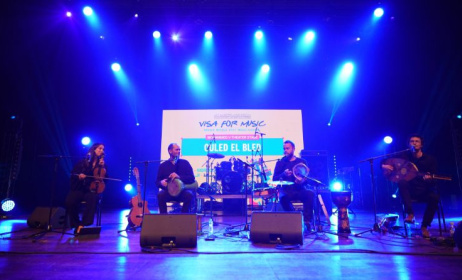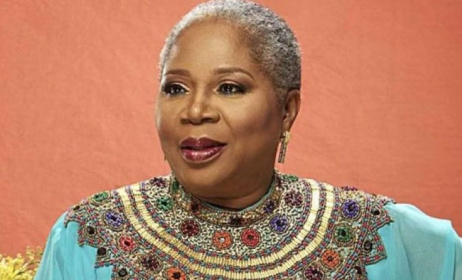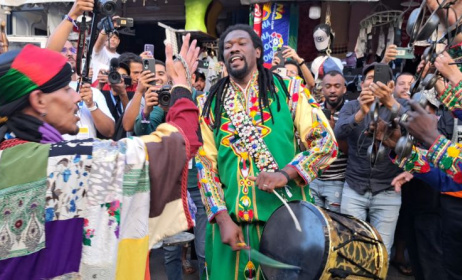Freemuse condemns closure of Moroccan cultural organisation
Freemuse has released a statement condemning the disbandment of Racines, a non-governmental organisation that promotes culture and advocates for freedom of expression in Morocco.
 Moroccan musician Barry was one of the guests on the '1 dîner 2 cons' satirical show that aided in the dissolution of the Racines cultural organisation. Photo: Facebook
Moroccan musician Barry was one of the guests on the '1 dîner 2 cons' satirical show that aided in the dissolution of the Racines cultural organisation. Photo: Facebook
“Freemuse stands with Racines and its important work in engaging in cultural events and stimulating and initiating dialogues, as well as acting as a beacon for freedom of expression in the country,” the statement reads.
The statement continues: “The request for dissolution is based on Racines having organised activities outside its stated objectives: facilitating access to culture, advocacy for the establishment of a cultural policy in Morocco, advocacy for the promotion of cultural diversity, advocacy for the status of artists and the organisation of cultural activities nationally, continentally and internationally.”
The order to dissolve the organisation was issued by a Casablanca court on 26 December. This after Racines hosted a satirical show online titled 1 dîner 2 cons (1 dinner, 2 dummies) in August.
According to Moroccan online publication Le Desk, the court's ruling is based on the tone used by the show's guests, especially while addressing King Mohammed VI, the presence of alcohol on the set and the fact that Racines had derogated from its statutes. The three-part video was strongly criticised by politicians and caught the attention of Casablanca-Anfa governor Rachid Afirat who made a formal complaint.
The show's content criticises the Moroccan government and the violation of human rights by Moroccan authorities. It features activists Binomial Amine Belghazi and Youssef El Mouedden, who also work for the organisation.
Also present were musician Barry, actor Aadel Essadani, Human Rights Watch spokesperson for the Middle East and North Africa Ahmed Benchemsi, journalist and activist Omar Radi, economist Rachid Aourraz and religious minority advocate Jaouad Hamidi.
For almost 10 years, Racines, a long-term partner of Freemuse, was involved in the implementation of Morocco's cultural policy through the advocacy of artistic freedom of expression as well as the training and capacity-building of artists.


































Comments
Log in or register to post comments